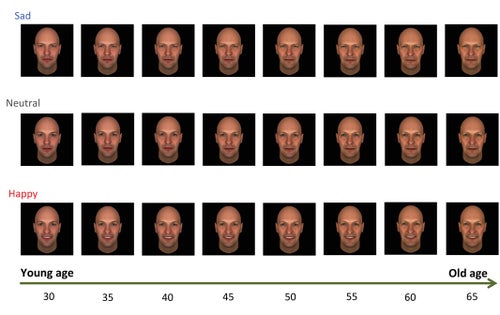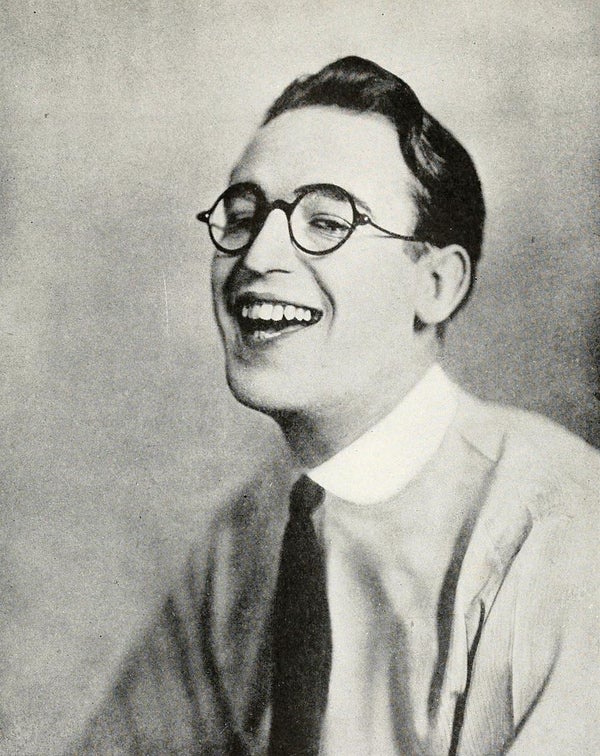This article was published in Scientific American’s former blog network and reflects the views of the author, not necessarily those of Scientific American
Perception is not easily separable from emotion, a fact that magicians often exploit in their acts. Hilarity in a magic show not only entertains, but it also misdirects. Johnny Thompson (aka The Great Tomsoni) says that when the audience laughs, time stops – and the magician can get away with a lot more than if spectators had been intently watching with somber faces.
A paper published 2 weeks ago in the journal PLOS ONE reveals another kind of everyday misdirection that is also based on positive emotion. Psychologists Norah C. Hass, Trent D. Weston, and Seung-Lark Lim, of the University of Missouri-Kansas City, set out to investigate if there is any truth to the intuition that smiling makes us look younger.
To find out, they asked experimental (college-aged) subjects to judge whether a set of computer-generated male faces were ‘young’ or ‘old.’ The faces ranged in age from 30 to 65, and could have sad, happy, or neutral emotional expressions.
On supporting science journalism
If you're enjoying this article, consider supporting our award-winning journalism by subscribing. By purchasing a subscription you are helping to ensure the future of impactful stories about the discoveries and ideas shaping our world today.

Computer-generated faces used in the experiments. Ages ranged from 30 years old to 65 yeas old, in 5-year increments.
The results showed a definite effect of emotional expression on perceived age. Faces at the lower age range were more often judged as ‘old’ when they looked sad than when they were neutral. Likewise, faces at the higher age ranges were more often judged as ‘young’ if they looked happy than if they looked neutral. The authors concluded that facial emotion interacts with age perception in such a way that a happy expression elevates the threshold for being considered ‘old,’ while a sad expression lowers it.
Not that you should be grinning like a maniac when you take your next selfie—but something to keep in mind.
